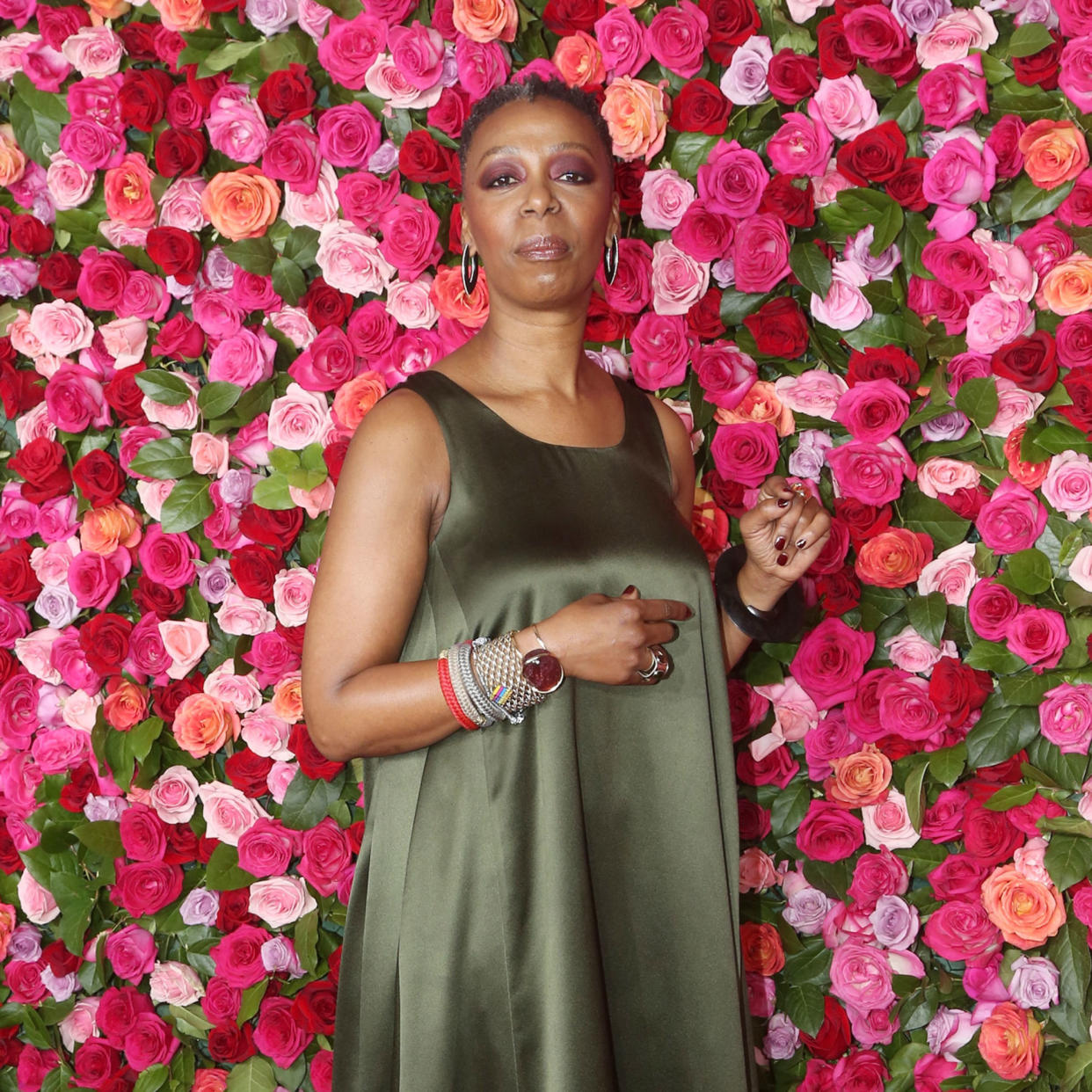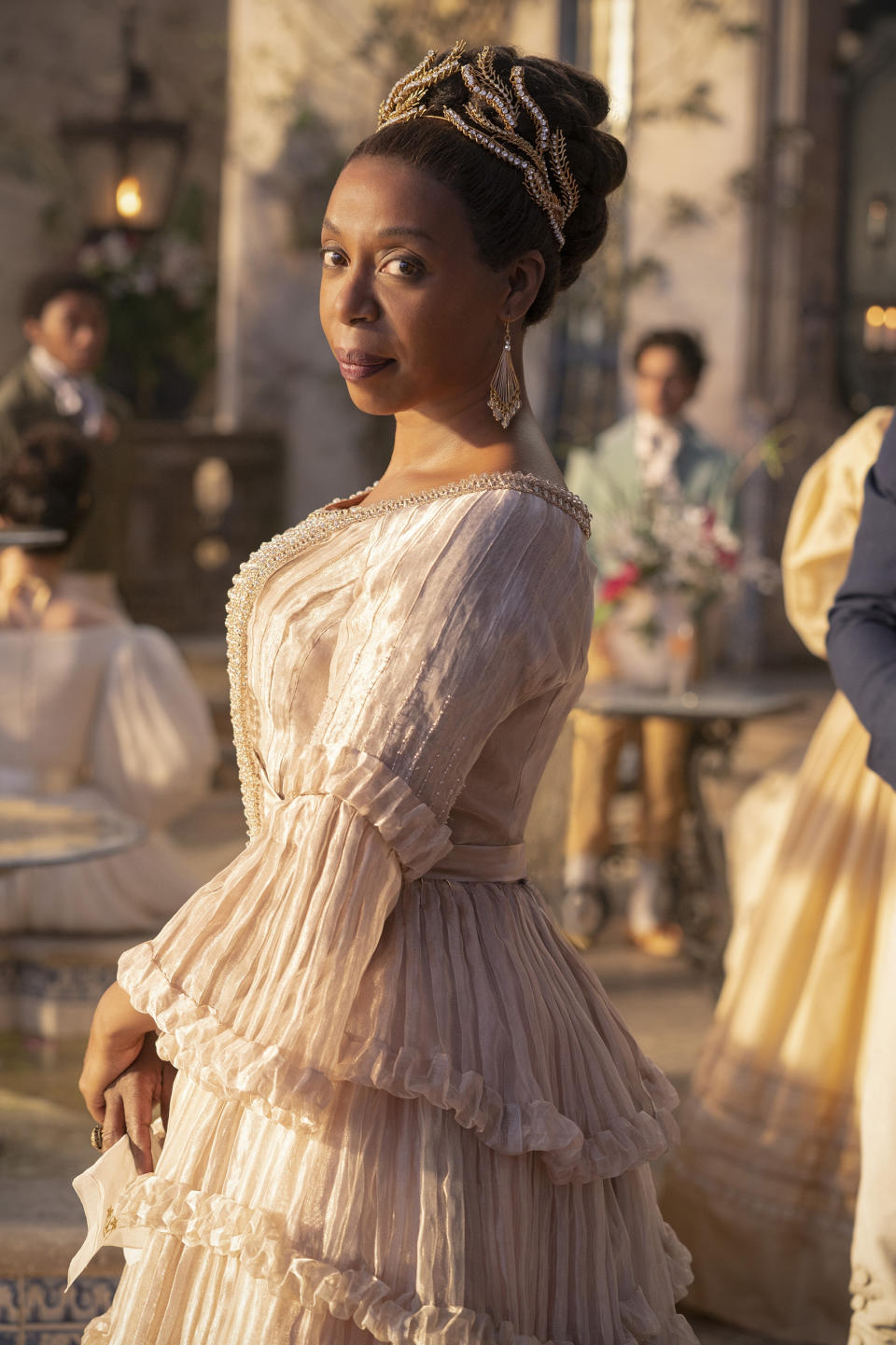'Little Mermaid' star Noma Dumezweni says casting backlash stems from 'fear'

- Oops!Something went wrong.Please try again later.
Noma Dumezweni is no stranger acting to a spinoff, sequel or remake of a beloved work.
Before she was Queen Selina, Prince Eric's mother, in the 2023 live action remake of "The Little Mermaid," she played Miss Penny Farthing in "Mary Poppins Returns." And before that, she played Hermione Granger in the original West End production of "Harry Potter and the Cursed Child."
Before "The Little Mermaid," what united these projects was that she was one of the only Black actors on a predominately white set.
"When I look back on it, yeah, they took risks," Dumezweni tells TODAY.com. "And that's what's sad to share, honestly. They took risks and put Black people in those spaces. That says something about where we are in the world. I look forward to the day that it's not about me being Black anymore."

Like star Halle Bailey, who plays Ariel, Dumezweni's casting raised backlash, especially when it was announced that she would be playing Eric's mom.
"I remember when the news came out ... people were like, 'What? She's Black?'" she says.
Her response is simple.
"I f------ hate stupidity," she tells TODAY.com. "In my head, I'm going, 'That's your first instant reaction?' ... If that's your first reaction to it, then you're not ready for the stories."
Bailey's casting as Ariel in the live-action remake was met with racist responses, such as the rise of the hashtag, #NotMyAriel.
In 2015, Dumezweni went through a similar experience when she was cast as Hermione in the "Harry Potter" stage play by J.K. Rowling. She told The Sunday Times later that year that she was "tagged into stuff that’s not nice," which represents "ignorance."
"I think the deepest thing for me was the realization there was such a lack of imagination in some people's lives," she tells TODAY.com.
This time around, she says she watched the hate from her burner Twitter account. The comments that made her angriest were those that wrote off the remake altogether.
"Why are you putting it out there?" she says. "Who are you telling that to? In what way are you improving the narrative of the world that you live in?"
While she hates the response, she explains that it's indicative of the time defined by "fear."
"I do believe that we’re at a crossroads, a fork, an emotional evolution as human beings,” she says. "And we’ve got to get out of f----- fear.”
She recalls this "fear base" making comments to the effect of, "How dare this mermaid be a Black girl?"
"'Oh f--- right off, for a start,'" she says in response.
"That's your fear," she adds. "That's your lack of imagination ... they lacked curiosity about what else is possible."
She also points out that mermaids have never been a "white story," she says.
"All folklore, all nations which have the Earth and the ocean meeting together will always have magical stories because that's what the elements of the Earth do for all of us," she says.
She says the moral panics and boycott calls are made all the more ironic by the lesson viewers can learn from her character and her under-the-sea foil, King Triton, played by Javier Bardem.
In the movie, Triton forbids Ariel from going to the surface of the water and Queen Selina forbids Eric from sailing after his shipwreck. Their actions represent "fear of the other," she says, which both parents have to overcome in order for their children to grow.
"Fear brings out the worst of us, and fear stunts the growth of those we are supposed to be guiding," she says, reflecting on the takeaways for parents in the audience.
But this "fear" is balanced out by "faith," she says, epitomized by viral videos of children's adorable and amazed reactions to film teasers and Disney's live-action Ariel cast member.
"It was extraordinary," she says.
As a Black girl growing up, wanting to be an actor, Dumezweni says she "wanted to be white."
"It just seemed so much easier, is the only way I can describe it," she says.
What she did instead was use her imagination to put herself in a movie.
"I can be Humphrey Bogart, I can be Lauren Bacall, I can be Bette Davis," she says. "That version I'll never see, but it's in my imagination. And that's when I get angry with people with lack of imagination, because it's so easy."
Now, though, she says she stands proud part as part of the "global majority."
"That's a phrase that I can absolutely use and understand, because we are," she says. "The spaces of Blackness have been put in little pockets ... and I think we're superheroes."
But she notes that she didn't start feeling this way until she entered her mid-50s.
"This is the life, in a weird metaphysical way, I wanted to experience," she says. "But f--- me, it's painful."
This article was originally published on TODAY.com

